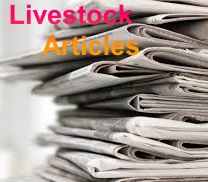Sandveld Water Restrictions Catastrophic For Food Security
Sandveld water restrictions catastrophic for food security
By Lindi Botha |18 July 2024 | 7:00 pm
Skyrocketing potato prices seen at the end of 2023 could become the new reality if water usage restrictions are imposed on farmers in the Western Cape’s Sandveld region
The Verlorenvlei’s water levels have recovered after the drought in 2017 and is currently spilling into the ocean after ample rain in the Western Cape. Photo: Lindi Botha
“If potato prices rise by 173% when 1 600ha of potatoes are removed from the market, what will be the effect of 2 100ha?” asked FP Coetzee, Potatoes South Africa’s manager of information and regional services.
He was referring to 2023 when load-shedding resulted in farmers reducing potato production by 1 600ha. This resulted in prices nearly doubling from the long-term average of R42,87/10kg to R72,92/10kg.
READ Black frost devastates Limpopo farmers, threatens potato prices
Should the planned restrictions to reduce agricultural water usage by 30% be implemented, production would decrease by 2 100ha, resulting in a catastrophic increase in prices.
The Department of Water and Sanitation (DWS) has proposed a water reserve determination for the F60 and G30 catchments in the Berg-Olifants water management area in the Western Cape.
Water reserves serve as a baseline of water availability in the region, setting a limit on how much water can be extracted. In this case, DWS has proposed that water extraction be reduced by 30%, which would result in 30% of the hectares under potatoes taken out of production.
The reserve has been marred by controversy, not only because of the impact on the area’s economy, but because the calculations used to determine the available water have been “thumb sucked”.
Anonymous sources within district and municipal governments in the area said that water meters on boreholes in the area had been broken for years.
“There is zero monitoring, so there is no data on which to base water figures,” said one source.
READ Namibia minister issues groundwater warning
Pressure to reduce water for agriculture mounted during the last few years’ droughts, leading to drying of the Verlorenvlei, a Ramsar site.
The latter is a recognised wetland of international importance. After water levels reached zero in 2017, farmers were blamed for over-extracting water from the catchment area. Hydrogeologists however maintain that it was a natural consequence of the drought.
Although water levels have returned to normal after the drought ended around 2022, the Verlorenvlei’s water meter too has become defunct, preventing any official water monitoring since.
Willie Jacobs, CEO of Potatoes South Africa, said that imposing a water reserve beyond what was necessary to achieve ecological stability would have far-reaching consequences for the Western Cape.
“Potatoes will become unaffordable to those who depend on it for food security. This, and the consequences of decimating the local economy would result in job losses, social unrest, migration and economic disparity.”
Figures provided by Potatoes South Africa show that around 38 farmers planting just under 6 000ha and employing over 6 000 people would be affected by the reserve determination.
READ Analysis: water intake of young Afrikaner and Nguni bulls
The Sandveld region is one of the few areas producing potatoes year-round, contributing significantly to a stable supply across the country throughout the year. Production areas in neighbouring provinces are approximately 700km away, making the Western Cape fresh produce markets largely dependent on locally produced potatoes from the Sandveld region.
Local government is also set to lose out as tax and VAT revenue could by around R300 million per annum.
Jacobs noted that ecological risks would increase since land left fallow would result in greater erosion and higher soil temperatures, which could lead to ecological changes and increase the chances of desertification.
“There is a prevailing, incorrect perception that farmers mine the earth,” said Monique Vlok, chairperson of the Sandveld Potato Producers’ Association.
“We want to ensure we, as well as future generations, can keep farming, and that means protecting natural resources. We are as much concerned about unsustainable water use as anyone else, which is why we focus on sustainable practices that maximise water use efficiency.”
Data from the Water Footprint Calculator shows that potatoes have the lowest water footprint of all staple crops – coming in at 34 litres per serving of 113grams, compared to the 276 litres required to produce the same amount of rice, 144 litres for maize and 182 litres for a serving of bread.
Jacobs requested that DWS instead explore more efficient water management strategies, integrated water resource management, and the provision of training and capacity building for those involved in water management on potato farms as a solution.
“These measures could achieve the desired ecological outcomes without the adverse effects on the potato industry and the broader community.”

.jpg)






